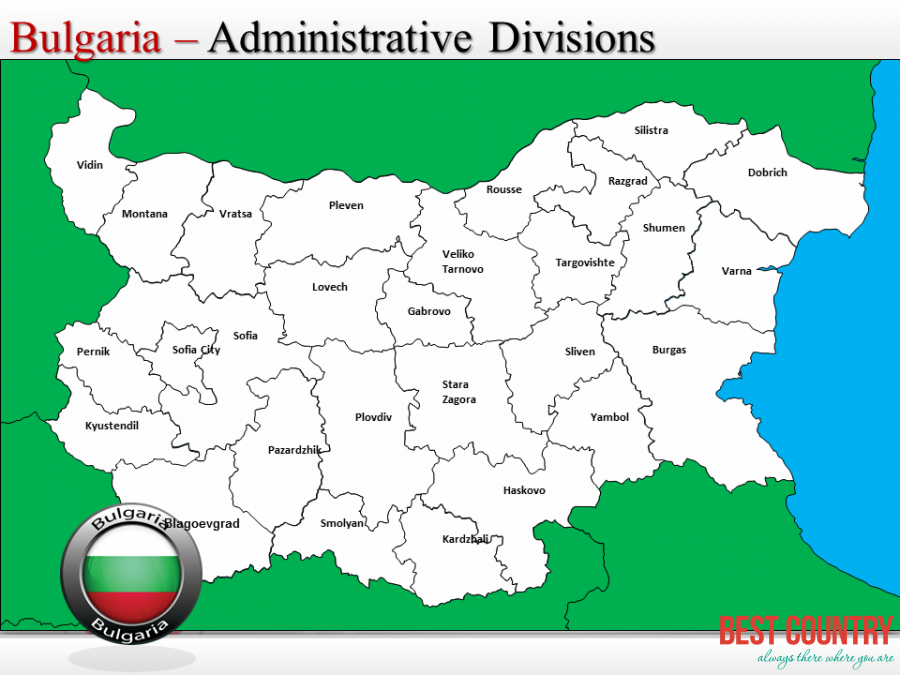Bulgaria is a unitary state. Between 1987 and 1999 the administrative structure consisted of nine provinces (oblasti, singular oblast).
Administrative divisions of Bulgaria
In 1999, in parallel with the decentralization of the economic system, a new administrative structure was adopted. It includes 27 provinces and a metropolitan capital province (Sofia-Grad).
All areas take their names from their respective capital cities. The provinces subdivide into 264 municipalities.
Regional governors are named by the national Council of Ministers, providing for a highly centralized state.
Municipalities are run by mayors, who are elected to four-year terms, and by municipal councils, which are directly elected legislative bodies.
Subnational jurisdictions are heavily dependent on the central government for funding.
 1.Blagoevgrad
1.Blagoevgrad
2.Burgas
3.Dobrich
4.Gabrovo
5.Haskovo
6.Kardzhali
7.Kyustendil
8.Lovech
9.Montana
10.Pazardzhik
11.Pernik
12.Pleven
13.Plovdiv
14.Razgrad
15.Rousse
16.Shumen
17.Silistra
18.Sliven
19.Smolyan
20.Sofia Province
21.Stara Zagora
22.Targovishte
23.Varna
24.Veliko Tarnovo
25.Vidia
26.Vratsa
27.Yambol